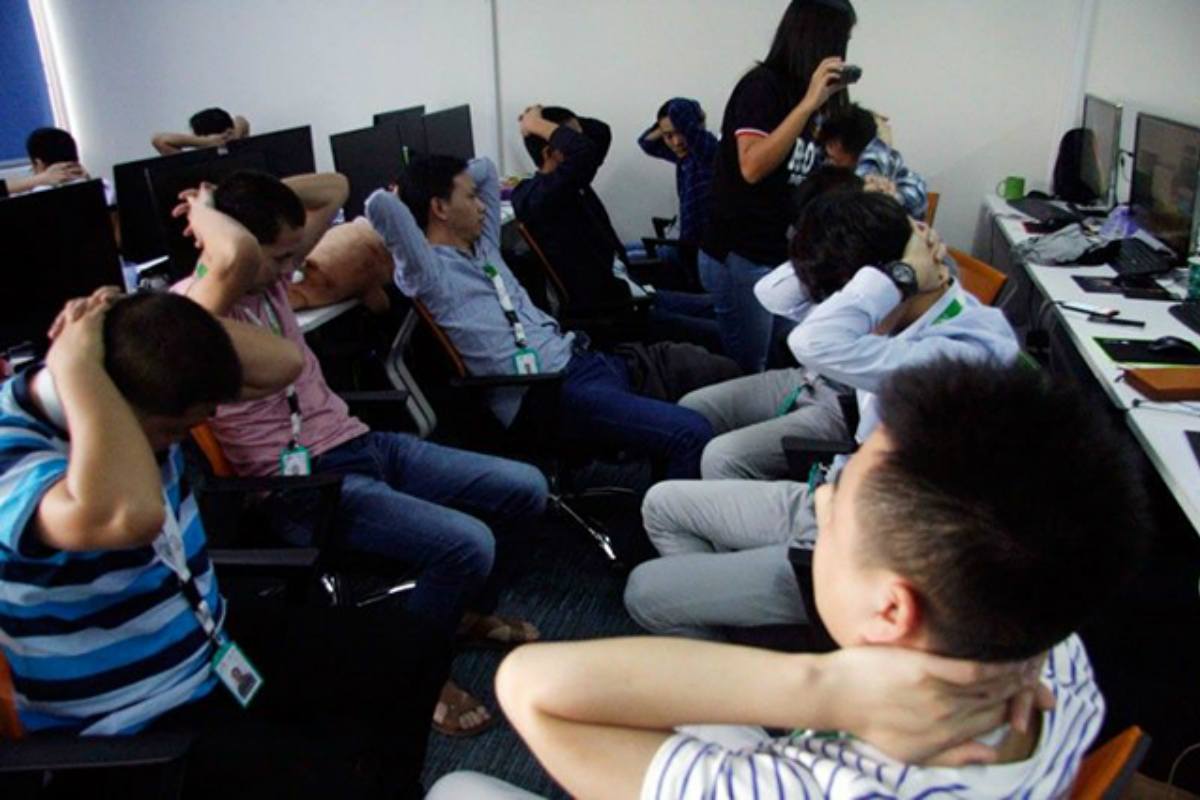Hundreds of Chinese Nationals Allegedly Working Illegally in Philippine Gaming Industry Arrested
Posted on: September 18, 2019, 01:00h.
Last updated on: September 17, 2019, 03:43h.
A total of 324 Chinese nationals have been arrested by authorities with the Philippines Bureau of Immigration (BI) on allegations that the foreigners have been engaged in cyber crimes, including operating unauthorized online gaming.

The raids were carried out at eight locations in Puerto Princesa in the western Philippines province of Palawan. BI Commissioner Jaime Morente said those detained “were caught in the act of doing their illegal activities.”
They will undergo deportation proceedings for violating the conditions of their stay in the country and working here without permits,” Morente said in a release. “Initial reports indicate that most of these aliens are overstaying and undocumented.”
Filipino officials say the locations had been surveilled for several weeks.
Offshore Gaming Crackdown
The Immigration Bureau is responsible for administering and enforcing immigration, citizenship, and alien admission. The agency’s mission is “to control and regulate the movement of persons to, from, and within our country.”
BI’s latest monumental task is to better regulate the widespread Philippines Offshore Gaming Operators – known as POGOs – doing business in the country. They target gamblers in other countries via the internet.
This week’s raids come as little surprise.
Law agencies in the Philippines are actively investigating POGO enterprises after the China Embassy ramped up pressure last month. China asserts the online gaming networks unlawfully target its people. In China, all gambling aside from the state-run lottery is illegal.
The China Embassy additionally claims Chinese nationals are flowing into the Philippines as tourists, only to then work in POGO hubs. China says its citizens are being enticed with good pay, but are forced into near slave-like conditions, physically abused, and have their passports confiscated.
Officials in the Philippines are equally concerned, as many POGO hubs are located in freeport zones near military bases. Defense Secretary Delfin Lorenzana said the large masses of Chinese nationals so close to sensitive military compounds could jeopardize national security.
Deportations Scheduled
The Philippines says most of the 342 Chinese nationals will likely be extradited back to the People’s Republic of China. But penalties and potential criminal charges could be forthcoming for the companies that employed the foreigners.
The BI says hundreds of laptops, cell phones, and other media devices were confiscated during the raids. Philippines President Rodrigo Duterte has ordered BI and the Department of Finance to shut down any POGO found to be in violation of paying taxes.
The Philippine Amusement and Gaming Corporation (PAGCOR) has suspended issuing new POGO permits because of the ongoing scandals surrounding the industry. Duterte met with China President Xi Jinping to hear his wishes that all Filipino internet offshore gaming platforms be shuttered. But the controversial leader said after their visit, “I decided we need it to benefit the interest of my country.”
Philippines Ambassador to China Jose Santiago Sta. Romana echoed Duterte’s position, saying, “They [China] cannot dictate us. Those are sovereign decisions. That is where we stand.”
The Philippines government collected around $235 million in taxes from offshore gaming between 2016 through 2018, but the thriving market is on record pace. Through two quarters in 2019, POGO tax revenue stands at more than $51.15 million.
Related News Articles
Poll Says Americans Want States, Not Feds, to Handle Online Gambling
Former US Rep Mike Oxley Says Online Gambling Ban Would Be Misguided
Feinstein Lends Surprise Support to Federal Online Gambling Ban
UKGC Orders British Online Gambling Sites to Remove Withdrawal Restrictions
Most Popular
Mirage Las Vegas Demolition to Start Next Week, Atrium a Goner
Where All the Mirage Relics Will Go
Most Commented
-
Bally’s Facing Five Months of Daily Demolition for Chicago Casino
— June 18, 2024 — 12 Comments
















Last Comment ( 1 )
He will additionally exempt from any type of cap current graduates of PhD programs in STEM areas in the united state As well as, Biden will triple the current cap of 10,000 on U-visas; this cap wants to fulfill the alarming requirements of targets.